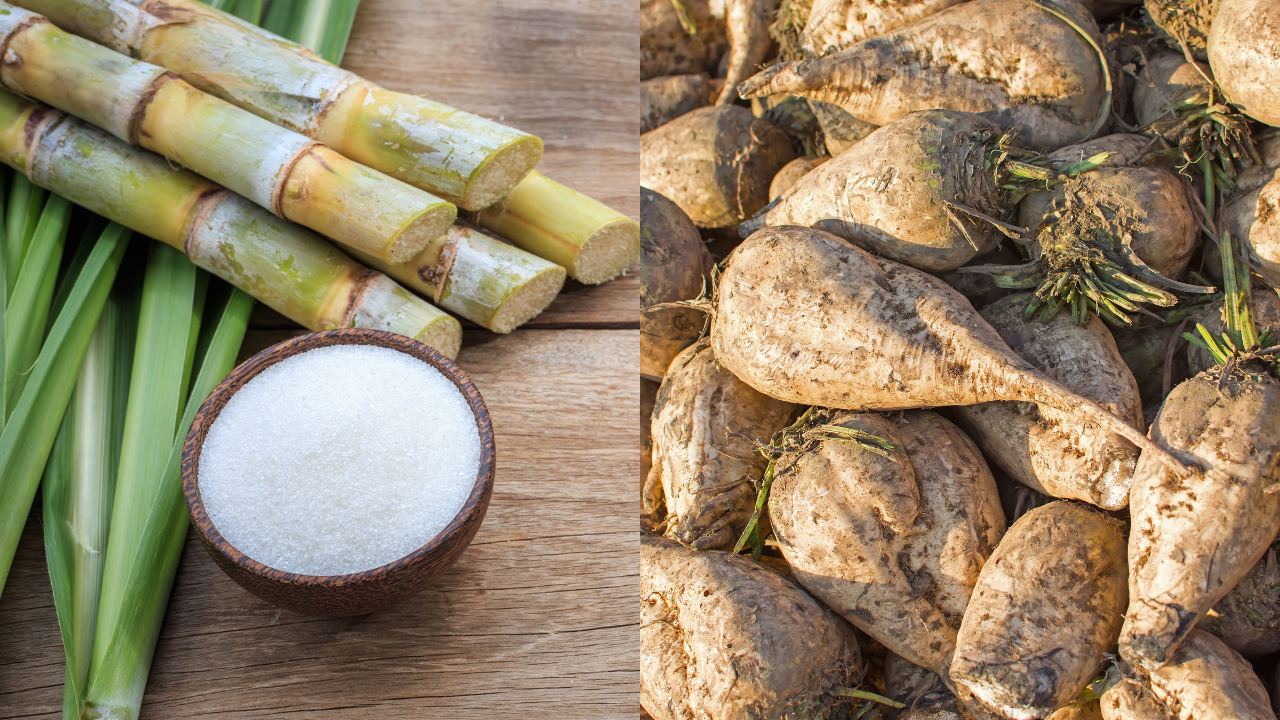In discussions of beet sugar vs cane sugar, the source of the sugar plays a important role in its characteristics.
In discussions of beet sugar vs cane sugar, the source of the sugar plays a important role in its characteristics.
Blog Article
Exploring the Distinctions in operation and Benefits In Between Beet Sugar Vs Cane Sugar
In the culinary globe, the choice between beet sugar and cane sugar is not simply concerning sweetness yet includes a nuanced consideration of flavor, application, and influence. While both sugars stem from various plants, each undergoes unique production processes that subtly affect their qualities and suitability for numerous dishes.
Beginnings and Manufacturing Procedures of Beet and Cane Sugar

Walking stick sugar, on the various other hand, comes from the sugarcane plant, a tropical yard indigenous to Southeast Asia but currently grown in tropical zones worldwide - beet sugar vs cane sugar. The manufacturing of cane sugar starts with the harvesting of cane stalks, which are squashed to launch the juice.

Nutritional Content and Health And Wellness Considerations

When contrasting the dietary content of beet sugar and cane sugar, it comes to be apparent that both kinds basically provide the exact same calorie values, with around 16 calories per tsp and no significant nutrient diversity. Both sugars, when consumed in excess, can contribute to elevated blood sugar levels, a threat variable for diabetes mellitus and other metabolic problems. From a health perspective, moderating intake of any kind of kind of sugar, whether from beet or cane, is suggested to stay clear of these possible negative results on health.
Flavor Profiles and Culinary Applications
Despite their similar chemical structures, beet sugar and cane sugar differ discreetly in flavor, which can influence their use in various culinary contexts. Walking stick sugar often lugs a hint of molasses, even in its refined form, offering a cozy, caramel-like undertone that enhances baked goods, coffee, and chocolate-based recipes. On the other hand, beet sugar is identified by its extremely fine-tuned, neutral preference, making it a flexible sweetener that does not modify the flavor profiles of meals.
Environmental Influence and Sustainability
While both beet and cane sugars are acquired from plants, their ecological impacts differ substantially because of the unique methods of cultivation and handling required for every. Sugar beet farming typically entails comprehensive mechanization, which can enhance nonrenewable fuel source intake and carbon emissions. Nevertheless, beetroots can be expanded in cooler climates and call for less irrigation, potentially minimizing water usage contrasted to sugarcane. Sugarcane, on the various other hand, is typically grown in exotic regions where it relies heavily on irrigation and a longer growing period, increasing its water footprint.
Additionally, the processing of sugarcane typically creates a considerable quantity of waste, including bagasse, which, although functional as biofuel, frequently contributes to air pollution if melted site web inefficiently. Sugar beet processing makes use of more of the raw materials, resulting in much less waste. Both sectors encounter difficulties in reducing their environmental footprints, but recurring innovations in farming practices and waste monitoring are aiming to improve sustainability.
Economic Factors Influencing the Sugar Sector
The economic dynamics of the sugar industry are significantly affected by global market demands and trade policies. In regions where sugarcane or sugar beet manufacturing is subsidized, manufacturers might have an economic benefit that allows them to offer lower costs on the international market.
Furthermore, variations in international need for sugar, affected by dietary trends and industrial usage in foodstuff, directly effect prices and manufacturing degrees. beet sugar vs cane sugar. Weather condition problems additionally play an essential role, as they can substantially affect plant returns and, consequently, the supply chain. This variability introduces a level of economic uncertainty that can bring about financial investment volatility in sugar production sectors, affecting decisions from planting to market method
Final Thought
In verdict, both beet Extra resources and cane sugar have distinct top qualities that suit various cooking demands. While cane sugar imparts an abundant flavor ideal for improving baked products, beet sugar's neutrality is excellent for lighter recipes. Nutritional similarities notwithstanding, their unique manufacturing processes and ecological effects add complexity to the choice in between them. Therefore, comprehending Learn More these differences aids cooks and consumers make educated decisions that line up with their health and wellness, cooking, and ethical choices.
Report this page